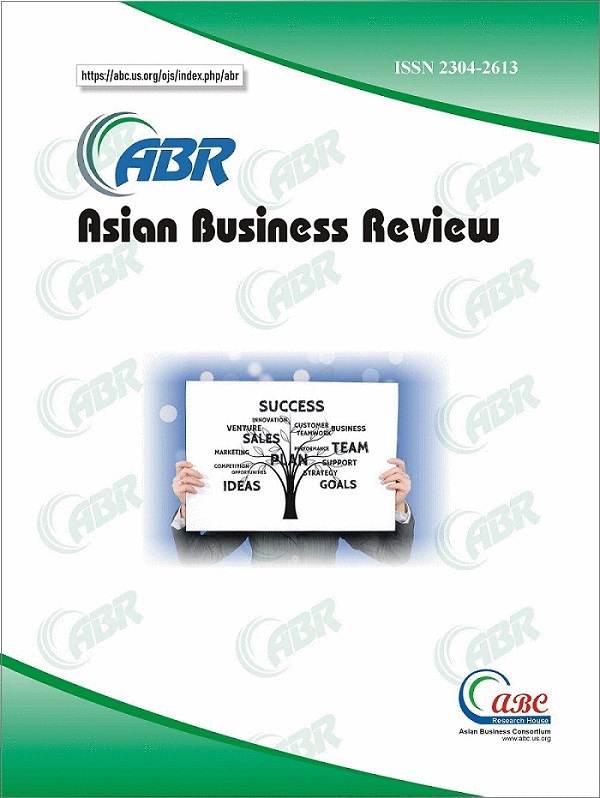The Foreign Exchange Reserve and Economic Crisis: Evidence from Bangladesh
DOI:
https://doi.org/10.18034/abr.v15i1.749Keywords:
Forex Reserve, Economic Crisis, Inflation, Inward Remittance, Money Laundering, Mega ProjectAbstract
The paper attempts to reveal different aspects of Bangladesh's ongoing foreign exchange reserve crisis. Data from the Bangladesh Bank shows why Forex reserves have recently decreased. Deferring payment during COVID, higher cost of imports, lower export revenue, and the devaluation of the Taka are a few of the factors. In the short term, the Government has acted exactly as it should have - capping the fancy tours, pampering the remitters, creating entry barriers for luxury products, scaling up exports, and attracting FDI. Its medium-term action includes bringing back illicit money that crossed borders to raise reserves. This study focuses on those aspects that are yet to be done. Production should be increased, and imports should be reduced further. Money laundering must be dealt with firmly. Increasing market supervision and keeping products reasonable are also essential for economic stability. Employment should be created through small industries; easy loans should be disbursed to promote self-employment. Significant sectors cannot be allowed to go bankrupt, and developing alternative export markets is also essential. Last but not least, it emphasizes supervising the actions of government employees at all levels to eliminate corruption.
Downloads
References
Aman, H. (2022, March 13). Russia-Ukraine war: Bangladesh economy feels the pinch. Daily Sun. https://www.daily-sun.com/post/610031/RussiaUkraine-War:-Bangladesh-economy-feels-the-pinch
Bangladesh Bank. (n.d.). Economic statistics. https://www.bb.org.bd/en/index.php/econdata/inflation
Chang, R., & Velasco, A. (2000). Financial fragility and the exchange rate regime. Journal of Economic Theory, 92(1), 1–34. https://doi.org/10.1006/jeth.1999.2621
Claessens, S., & Kose, M. A. (2013). Financial crises: Explanations, types and implications. IMF Working Paper, 2013/028. https://www.imf.org/external/pubs/ft/wp/2013/wp1328.pdf
Claessens, S., & Qian, Y. (1992). Risk management in Sub-Saharan Africa. IMF Working Paper, WPS 593, 1-58.
Eichengreen, B., Rose, A., & Wyplosz, C. (1996). Speculative attacks on pegged exchange rates: An empirical exploration with special reference to the European Monetary System. Cambridge University Press. (Also available as NBER Working Paper No. 4898).
Flood, R. P., & Graber, P. M. (1984). Collapsing exchange-rate regimes: Some linear examples. Journal of International Economics, 17(1-2), 1-13.
Flood, R., & Marion, N. (1998). Perspectives on the recent currency crisis literature. NBER Working Paper No. 6380, JEL No. F32.
Frankel, J. A., & Rose, A. K. (1996). Currency crashes in emerging markets: An empirical assessment. Journal of International Economics, 41(3-4), 351-366. https://doi.org/10.1016/S0022-1996(96)01441-9
Krugman, P. (1979). A model of balance-of-payment crises. Journal of Money, Credit and Banking, 11(3), 311–325.
Obstfeld, M., & Rogoff, K. S. (1985). Ruling out nonstationary speculative bubbles. NBER Working Paper No. w1601. SSRN: https://ssm.com/abstract=307105
Rahman, M. (2022, July 31). How to resolve the current account crisis. The Daily Star. https://www.thedailystar.net/business/economy/news/how-resolve-the-current-account-crisis-3083746
Rokonuzzaman, M. (2022, September 5). Long-run strategy in dealing with foreign currency crisis. The Financial Express. https://thefinancialexpress.com.bd/views/long-run-strategy-in-dealing-with-foreign-currency-crisis-1662388029
Downloads
Published
Issue
Section
License
Copyright (c) 2025 Mohammad Saifullah, Md. Mahmudul Huq, Mst. Momena Akhter

This work is licensed under a Creative Commons Attribution-NonCommercial 4.0 International License.
Asian Business Review is an Open Access journal. Authors who publish with this journal agree to the following terms:
- Authors retain copyright and grant the journal the right of first publication with the work simultaneously licensed under a CC BY-NC 4.0 International License that allows others to share the work with an acknowledgment of the work's authorship and initial publication in this journal.
- Authors are able to enter into separate, additional contractual arrangements for the non-exclusive distribution of the journal's published version of their work (e.g., post it to an institutional repository or publish it in a book), with an acknowledgment of its initial publication in this journal. We require authors to inform us of any instances of re-publication.











